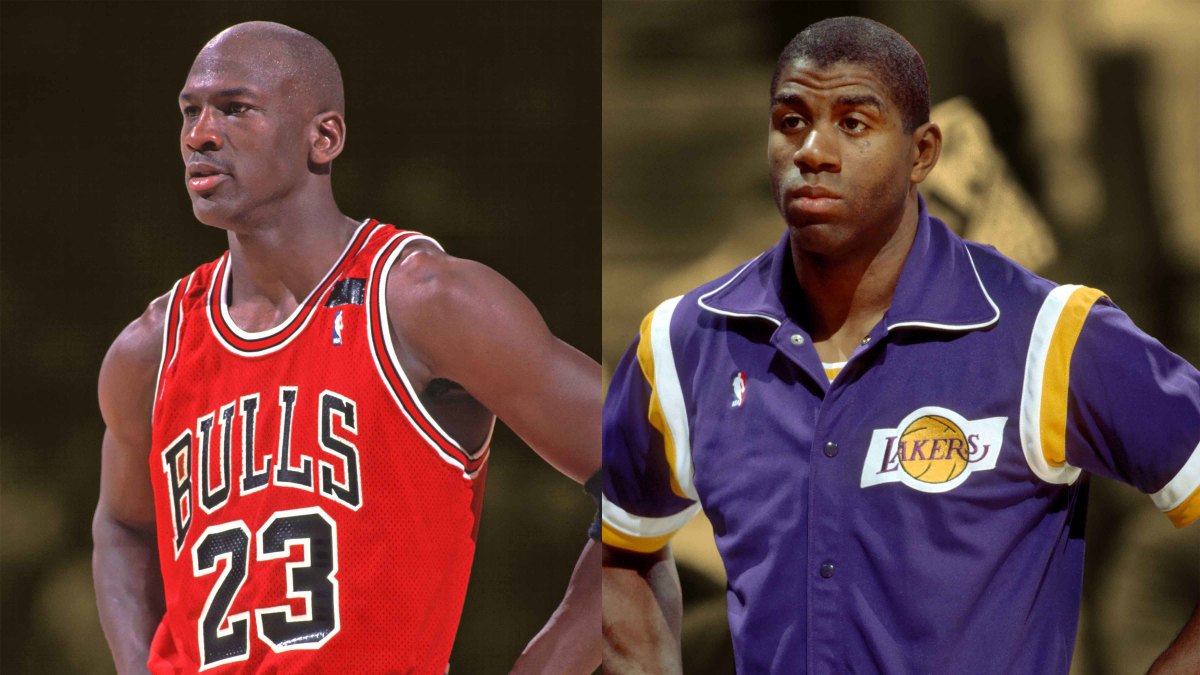Magic Johnson believed Michael Jordan struggled to be the face of the NBA after he and Larry Bird retired: “Michael wasn’t enjoying himself anymore” originally appeared on Basketball Network.
For most of the 1980s, the NBA was a two-man empire.
Advertisement
Magic Johnson and Larry Bird changed and defined the league. Their rivalry, one of the most iconic in sports history, transformed into mutual respect, and their overlapping dominance kept the league relevant and rising.
But everything shifted in the early 1990s. Magic abruptly retired in 1991 after revealing his HIV diagnosis. Bird, plagued by chronic back injuries, played through pain before quietly walking away in 1992.
And suddenly, the burden of carrying the league fell on Michael Jefferey Jordan.
Advertisement
New face of the league
It wasn’t immediate, but the impact was real. Jordan had already established himself as a singular force with consecutive scoring titles, MVP awards, and an obsessive hunger that burned brighter than anyone else’s. However, transitioning from being one of the stars to the star of the NBA was entirely a different responsibility. He became the face of an entire sport and a walking headline.
It took a toll initially.
“At that time, Michael wasn’t enjoying himself anymore,” Johnson said in 1996. “See what happened, Larry [Bird, who was in his last season] and I left and we left him. He’s the one sitting there. Now it’s just him.”
Advertisement
There had always been a sense of camaraderie among the league’s elite. Johnson and Bird had each other, plus seasoned stars like Isiah Thomas and Charles Barkley to share the weight. But when the torch was passed, Jordan found himself alone in the spotlight. With the old guard gone and no equal in sight, every win, shot, and mistake fell squarely on his shoulders.
The joy that once energized his game began to fade into the background, buried because of the pressure and relentless scrutiny. Even before Bird’s retirement, Jordan had begun to shift from hungry young star to cultural icon. After clinching his first title in 1991, he ascended into a new realm of fame, where sneakers outsold jerseys and fans mimicked his fadeaway on playgrounds worldwide. But that kind of spotlight scorches.
As Johnson recalls, Jordan had to conform to be the new face of the league. He had to maintain the aura of invincibility by winning, and his leadership style became what many described as harsh and demanding.
Advertisement
The smile that once lit up press conferences began to vanish. His teammates noticed it, coaches felt it, and the entire league saw it. And the more titles he won, the lonelier the mountaintop became.
Jordan’s burden of superstardom
In the late ’80s, Jordan was the media darling. Everyone loved him, even when the championships didn’t come. But as the ’90s came around and Bird and Johnson began to fade from the spotlight, Jordan was thrown into the fire.
Advertisement
“Then, wham, wham Every move, ‘Oh, Michael’s in Atlantic City,” Johnson said. “Everything got magnified, whatever he did, I’m talking about wherever he went. It was bigger than life. So now what happened, Michael set in. He was introverted because of all the attention. The league turned to Michael.”
In 1993, just months before shocking the sports world with his first retirement, Jordan found himself in Atlantic City during the Eastern Conference finals. A late-night gambling trip turned into a national scandal. It didn’t matter that he showed up to Game 2 on time or that he dropped 36 points. The narrative had already been written.
That season, his father was frequently seen courtside. Just weeks after Jordan’s third championship, the elder Jordan was murdered in North Carolina, and the grief hit deeper than the public could understand.
Advertisement
Jordan stepped away from basketball entirely. He suited up for the Birmingham Barons in minor league baseball, a detour some saw as bizarre, but those closest to him recognized it as survival.
The microscope was never kind, but in Jordan’s case, it was blinding. His life had become public property. Every personal or professional decision was consumed, dissected, and debated. And unlike Johnson and Bird, who had each other to absorb the media storm, Jordan had to weather it alone.
Yet from the ashes of that pressure, Jordan reinvented himself. He returned to the league in 1995, won three more titles, and cemented his status as the greatest to ever play. But those early ’90s years served as a reminder that greatness comes at a cost.
Advertisement
This story was originally reported by Basketball Network on Jul 25, 2025, where it first appeared.

